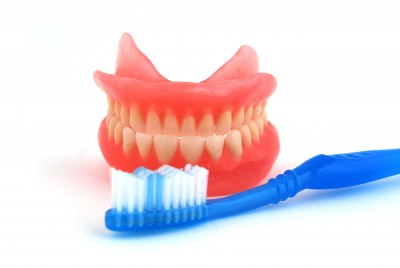
Did you know that pregnant women are at higher risk for developing periodontal disease than the general public? This is because hormone changes causes sensitivity and tissues tend to react more severely to the irritations that are present. So while a non-pregnant person’s bacterial levels may be identical to a pregnant woman’s, the non-expectant woman may not develop gum disease and the pregnant woman will.
So what if I have peridontal disease?
Besides the fact that peridontal disease may result in you ultimately losing your teeth (and your friends – due to bad breath!), the major cause of worry for a pregnant woman is that several studies have found a strong link between gum disease and pregnancy complications.
According to the American Academy of Periodontology, pregnant women who have periodontal disease may be seven times more likely to have a baby that is born too early and too small. Researchers believe that the bacteria that cause gum disease enter the bloodstream through the mouth and travel to the uterus, where they trigger the production of prostaglandins, which may cause premature labour. If a baby is born too soon, it can’t reach its full potential weight.
So what are the various types of periodontal gum disease, and what can you do to protect yourself and your unborn baby?
Pregnancy gingivitis
Happy that you weren’t the kid who discovered she had gingivitis during a routine dental check in school? Well say hello to pregnancy gingivitis which is the inflammation of gums. The bacteria in the plaque will have an easier chance of attacking gum tissue as the changes in hormones will cause the gum tissue to weaken.
Pregnancy tumour
Before you freak and think this is some sort of cancer, relax. It’s not. A common periodontal disease in the second trimester, this is a benign growth at the gum margin. It’s not dangerous and quite common. This tumour will disappear or shrink when you give birth. However, during pregnancy if it becomes a nuisance such as being a hindrance to your speech or embarrassing you with its size, see your dentist and get it removed.
Erosion of enamel
For mothers suffering from morning sickness, nausea and vomiting are frequent side effects. Gastric acid from the stomach can cause the enamel on your teeth to erode. This makes the teeth more sensitive and brittle.

Tips to maintain good dental care during pregnancy
– Maintain good dental care by brushing and flossing your teeth twice daily. Also use toothpaste with fluoride. If you are suffering from morning sickness, remember to rinse your mouth after each visit to the bathroom.
– Have your routine cleaning at the dentist done early in your pregnancy. Do remember to tell your dentist that you are pregnant and which trimester you are in as not all procedures are pregnancy safe. For example, try to postpone dental procedures such as bleaching till after the delivery of your baby.
– Have a healthy and balanced diet to ensure that both you and your baby have healthy teeth.We know food cravings are there and you’re probably going to want to gorge yourself with sweet things but it’s crucial to have a balanced diet. Your baby’s teeth will begin to develop three months into your pregnancy and a diet which consists of dairy products is a good source of essential minerals that will aid in the development of your baby’s teeth, gums and even bones.
– Avoid drinking alcohol or smoking during pregnancy. Studies have shown that smoking and consuming alcohol increases the probability of giving birth to underweight babies, who may face a greater risk of having poor teeth due to difficulties in forming enamel.